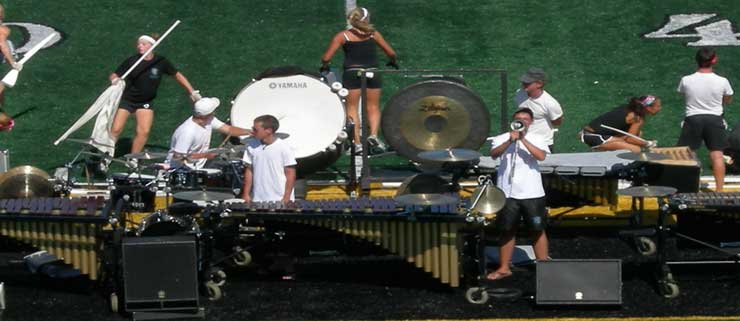.jpg) John Cage broke the mold on what was
considered to be music. His compositions using non-musical items led
many to argue that his idea of music was not music at all.
John Cage broke the mold on what was
considered to be music. His compositions using non-musical items led
many to argue that his idea of music was not music at all.
John Cage was an enigma of music. Like other composers before him he attempted to explore new styles and textures. But where others bent the rules, Cage broke them.
Changing The Sound of Music
Some would say that the music of John Cage (1912-1992) is not really music. To this fact they may point out that John Cage's most famous work is a piece bereft of all sound whatsoever, or at least of all "intentional" sound. His work, 4'33" (four minutes, thirty-three seconds) requires no effort whatsoever of the performers and audience, other than to simply sit in perfect silence. This is but one example of what Cage referred to as "non-intention." Even in silence, there is sound. The faint, distant sound of a train whistle, the low hum of the air conditioning system, the occasional shuffling of feet by the person seated next to you. These non-intentional elements are what inspired John Cage to work towards the creation of a Center For Experimental Music to allow composers to explore areas of music not related to traditional harmonies or rhythms. His autobiography details many of his thoughts and reasons behind the music he composed.
Experimental Music and Music of Chance
One of the many contributions John Cage made to this new form of experimental music is the idea of chance. Cage was a devout buddist and a believer in the use of the "I Ching" (The Book of Change) to create randomness in his music. Cage's unorthodox compositions led many to chastise him and belittle his creative endeavours. In truth, he gave them plenty of reasons to do so, creating such works as 0'0" where he simply stood on stage, blended vegetables and drank the juice. Other pieces involved the use of "prepared piano," and included the intentional detuning of the strings, placing objects on or between the strings, or other manipulations of the instrument.
Hostile Reaction To Cage's Compositions
John Cage's seemingly skewed approach to music led some in the music community to be almost hostile in their treatment of Cage and his music. In 1964 several members of the New York Philharmonic literally sabotaged a performance of his piece titled Elipticalis. This and other similar incidents throughout his career did not stymie his resolve to explore and stretch the boundaries of music. Later in his life he began to teach classes at several universities and passed on this rebellious spirit to a new generation of composers and musicians.







 Scroll down to view the comparison chart of over a dozen different portable digital audio recorders.
Scroll down to view the comparison chart of over a dozen different portable digital audio recorders.